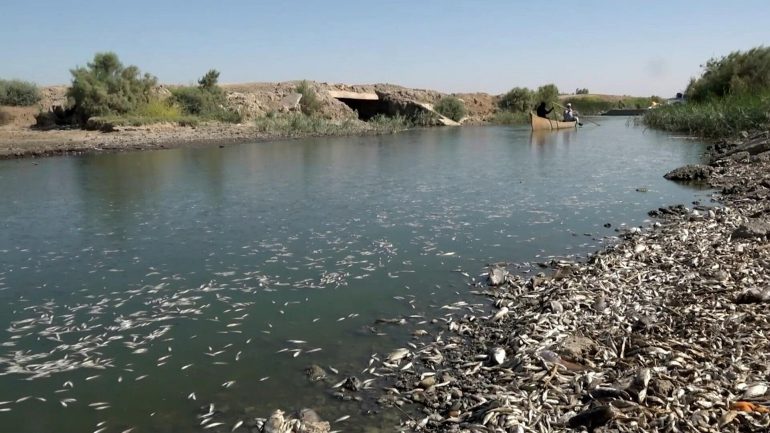An investigation into the mass fish die-off in Iraq’s southern Maysan province concluded on Monday, with the Ministry of Agriculture citing low oxygen levels, high salt content, and reduced water levels as the culprits.
Thousands of small fish washed up dead on the Amshan river banks in Majar al-Kabir, near the Iranian border.
No disease was detected in the fish, according to Thamir Habib, head of the Ministry’s veterinary department. The Ministry, in collaboration with Ammara hospital, ruled out disease as the cause of the deaths.
Al-Mirbad Radio, a Basra-based media outlet, first reported the mass fish deaths, prompting an official investigation. Officials initially speculated that drought conditions may be a contributing factor.
The area, home to marshes in the Tigris river floodplain, has already been affected by global warming. Ahmed Saleh Neema, an environmental activist, linked the incident to rising temperatures and reduced water flow, leading to oxygen deficiency and high salinity in the river.
Ranked by the United Nations as one of the top five countries most affected by climate change, Iraq is no stranger to environmental challenges. It has experienced decreased rainfall over the past four years, leading to reduced flow in the Tigris and Euphrates rivers.
Khodr Abbas Salman, a Maysan province official overseeing marshes for the Iraqi environment ministry, confirmed that the water’s oxygen level was zero and that salinity had risen. He said the ongoing fish deaths suggest possible chemical contamination. Water samples will be analyzed to confirm this.
The high salinity levels render the water unfit for agricultural use. “It would scourge the land if farmers use it for irrigation”, Salman warned. The death of more animals could potentially increase pollution levels and toxicity in the water and surrounding land.
The incident echoes a similar event in 2018 when thousands of dead carp were found in Babylon province, although the cause of those deaths was never determined.
AFP contributed to this report


